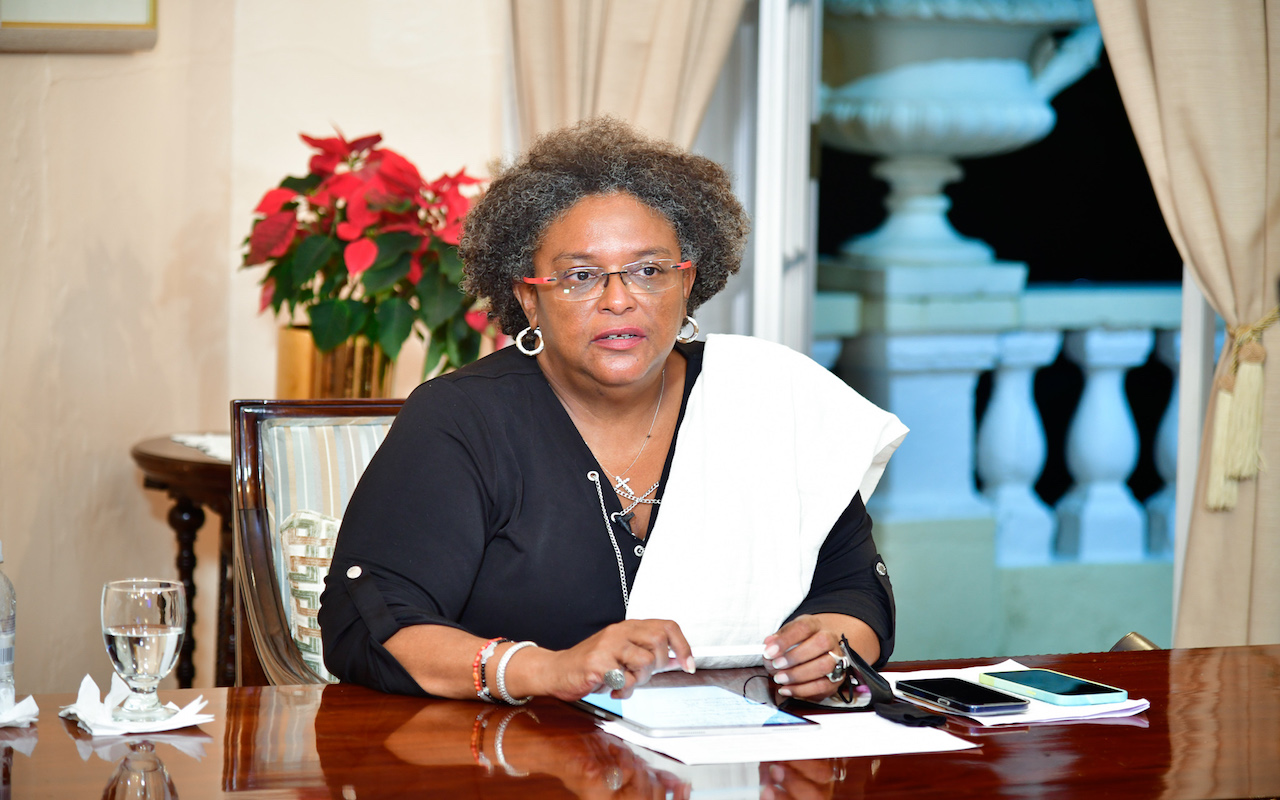Employers should restrain from the “highly unfair” practice of deducting sick days from workers who take time off to get tested for COVID-19, Prime Minister Mia Mottley has urged.
But she has hinted at the possibility of tax relief to compensate for the essential burden employers have had to bear while health authorities moved to wrestle a surge in coronavirus cases to the ground.
Declaring that she was worried about reports of the practice, Mottley said the actions were unfair to workers and called on members of the Social Partnership and labour unions to have a discussion about the issue so that a fair and just approach can be taken.
She said: “I think that is highly unfair, the workers who in most instances were not exposed because of being reckless or they being somewhere where they should not have been.
“In 95 per cent of the cases, it was because they were simply doing their job. To ask them to have to pay back by having their sick leave deducted such that when they really need it, because in most instances I must tell you, the majority of the tests so far have come back negative.
“So it means that yes they have been forced to stay at home for the five days, but if you deduct that from their sick leave allocation, then when they really are ill and need it, especially at the start of this new calendar year, it’s not going to be there for them.
“I hope that this is a matter that the social partnership can engage in between the private sector, the employers confederation and the unions to ensure that we can have clarity across the board with respect to it.”
Prime Minister Mottley also described as a necessary burden a company’s obligation to pay their workers for the two bank holidays given this week in order for health officials to do the necessary contact tracing over the weekend.
She said: “It’s challenging but it was essential. I think all of us would agree that we want to make sure that the country does not have a situation running out of control where people are dying, where people are appropriately affected.
“Therefore we took the decision in the national interest – I have indicated to those who raised a similar issue to us that we are prepared to look at compensating people for the additional cost…and it would be the difference between your normal exposure and what you had to pay.
“Rather than doing it up front, we are prepared potentially to look at it as a tax credit or tax allowance, so that when people are filing their taxes later this year we can then look to offset it.” (SB)




